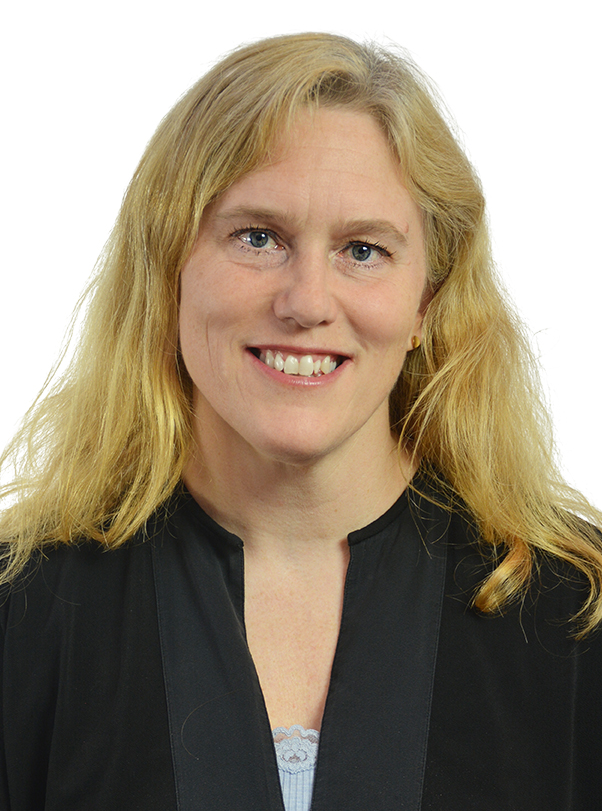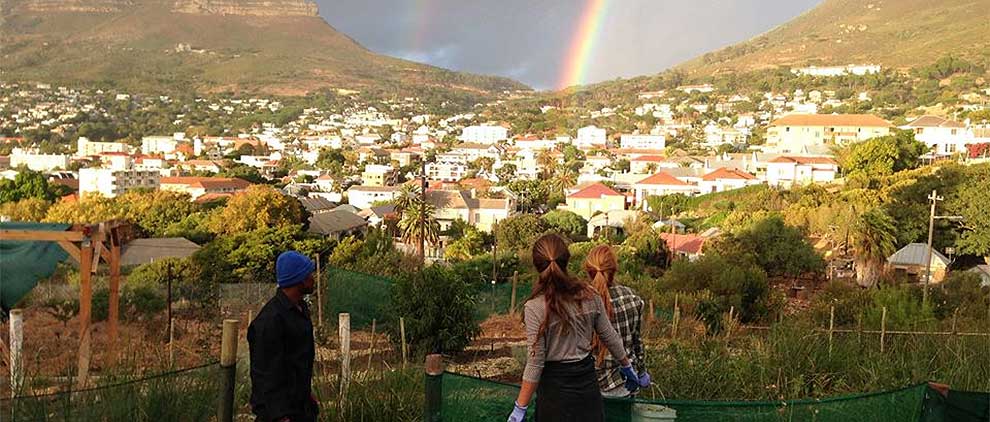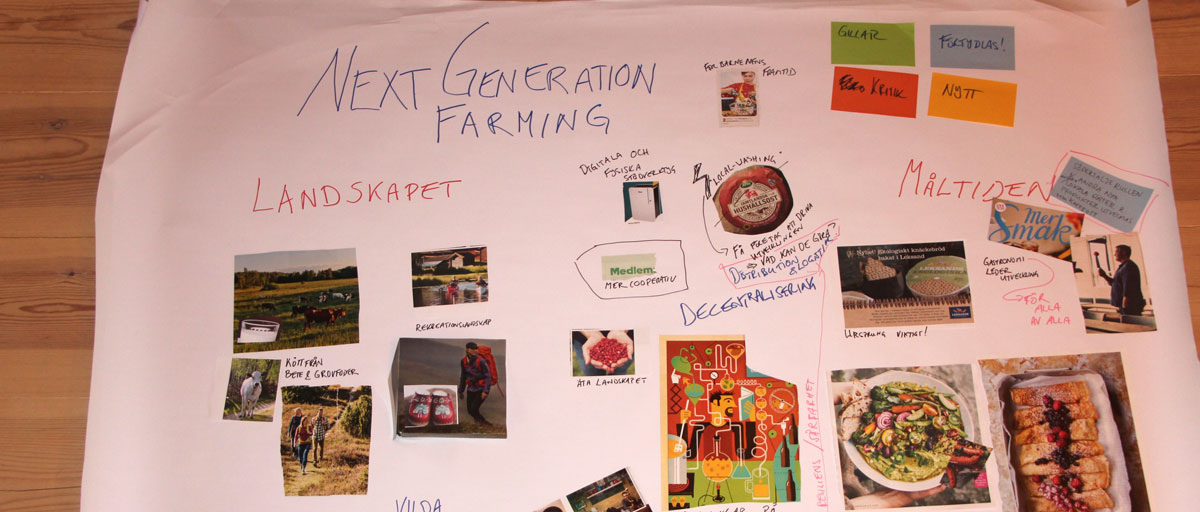
In a study published in Global Food Security, centre researchers have looked at how initiatives in the Stockholm-Mälaren region can be used as inspiration for a sustainable and resilient food future.
Bildtext får vara max två rader text. Hela texten ska högerjusteras om den bara ska innehålla fotobyline! Photo: B. Christensen/Azote
SUSTAINABLE FOOD SYSTEMS
If it works here, perhaps it can work there
Food initiatives within the Stockholm-Mälaren region in Sweden offer insight into a transformation of the global food system
- Current food systems are degrading biodiversity, soil quality, and the condition of the climate. This calls for transformation towards a sustainable food future.
- The researchers held a workshop to discover how local food projects within the Swedish Stockholm-Mälaren region are striving towards a more sustainable future.
- These experiences from Sweden are useful for understanding how collective action through local projects can guide food system transformation on a global level.
If the world is to change the current food systems into something more sustainable, seeds of inspiration are needed from a variety of places. That include grassroot initiatives in and around the Swedish capital.
In a study published in Global Food Security, centre researchers My Sellberg, Albert Norström, Garry Peterson and Line Gordon have looked at how these initiatives in the Stockholm-Mälaren region can be used as inspiration for a sustainable and resilient food future.
Together with scholars who have used the approach in different parts of the world, we believe that it can be useful to navigate food system change in other places as well.
My Sellberg, lead author
The future of food is bright
The authors explain how these local initiatives work with “food tech, urban farming, innovative farming practices, food waste and green rehabilitation.” These are themes behind the “seeds” used in a workshop which in turn is based on the Seeds of the Good Anthropocene project. This is an international scientific experiment gathering examples of positive initiatives that have the potential to be scaled up.
In the workshop, groups developed visions of how they thought local projects would create a sustainable shift for food.
These imagined scenarios revealed four main insights into “a vision of a positive food future.”
- Increased self-sufficiency and access to local food – Tightening connections between producers and consumers to reflect the importance of locally grown food and eating seasonally
- A vibrant and inclusive food sector – Enhancing the value of economic, social, and cultural aspects of food
- Nutrient-rich, less resource-intensive diets – Predicting the production of more nutrient-dense foods along with making less waste and eating less meat
- Agriculture contributing to environmental sustainability – Emphasising the importance of transitioning into sustainable agriculture for lessening its negative impact on the environment
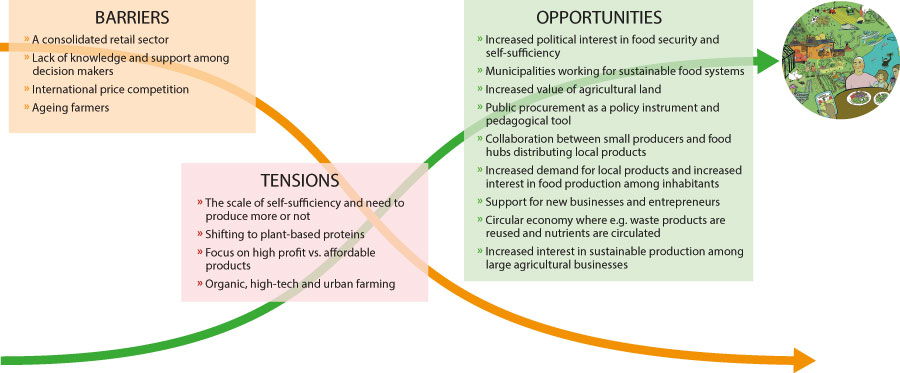
Start local, aim global
However, the researchers also highlight some conflicting responses from workshop attendees such as whether or not there is a responsibility to increase food production to benefit areas facing worse impacts of climate change. Individuals were also divided on the topics of making the switch to plant-based proteins and if prices should increase to represent higher food quality.
They also outline the main obstacles blocking this transition into a positive food future:
- A consolidated retail sector
- Lack of political will and knowledge
- International price competition
- Increasing average age of farmers
While it is important to acknowledge disagreements and obstacles, the researchers stress the key to creating a positive food future lies in the opportunities of this vision. This is what workshop-goers noted in their answers about opportunities for transformation such as influencing political change in the direction of food security. The focus on strengthening ties between producers and consumers was also considered a significant opportunity for rethinking how food is produced and consumed.
Considering the positive outlook of a vibrant and inclusive regional food sector, this presents an opportunity for several local initiatives to teach urban dwellers about sustainable food production.
This vision is also recognised by seeds “Sweden Foodtech” and “Farming incubator,” which support start-ups and food entrepreneurs acting to transform networks surrounding food production.
Seeds such as “Global Farm Platform,” “Perennial farming,” and “Biogas for cycles” offer hope for environmentally sustainable agriculture, which involves more circular models of how food waste can be returned back to the earth to feed food and energy production.
The researchers believe the work covered in their study is of interest to other regions beyond Stockholm-Mälaren: “Together with scholars who have used the approach in different parts of the world, we believe that it can be useful to navigate food system change in other places as well.”
Methodology
The researchers held a workshop based on the Seeds of the Good Anthropocene project where they invited people from a range of fields related to sustainable food to design scenarios of positive futures for food systems. The “seeds” were local initiatives (e.g. “start-ups, NGOs, business networks and grassroots initiatives”) in the Stockholm-Mälaren area (chosen because of its reputation as a leader in the shift towards sustainable food systems). Individuals in the workshop imagined how these seeds would develop in the future and sketched out how this would impact societies and the environment.
The visions were analysed using qualitative thematic analysis. This helped them to categorise aspects of the visions into overarching themes of what a positive food future would look like. They also surveyed participants about potential barriers and possibilities for reaching this vision. The researchers grouped these into tensions, barriers, and opportunities that workshop participants deemed important.
Sellberg, M.M., Norström, A.V., Peterson, G.P., Gordon. L.J. 2020. Using local initiatives to envision sustainable and resilient food systems in the Stockholm city-region. Global Food Security 24. https://doi.org/10.1016/j.gfs.2019.100334
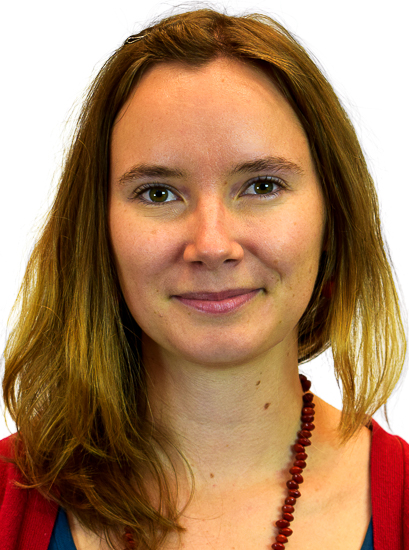
My Sellberg’s research focuses transformations to sustainable and resilient food systems, and how to apply resilience thinking in societal and environmental planning, from local to regional levels

Albert Norström explores the dynamics contributing to the reliable production of ecosystem services in social-ecological systems.
